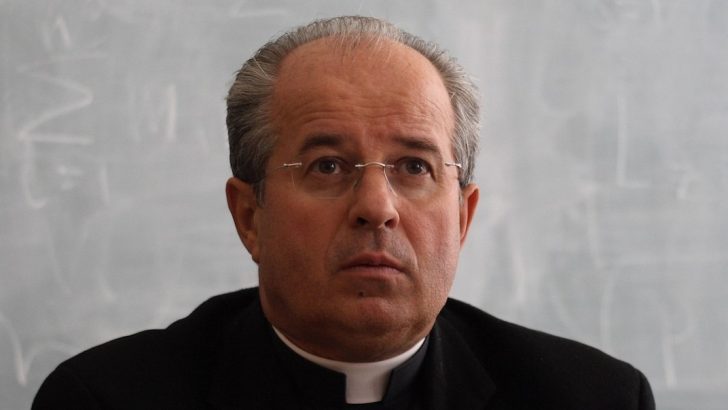Vatican diplomat criticises ‘divisive’ UN report on Islamophobia
A Vatican diplomat has expressed dismay at “the narrow scope” of a United Nations Human Rights Council report into the persecution of people of faith.
Addressing the 46th Session of the Human Rights Council in Geneva, Switzerland, March 4, Archbishop Ivan Jurkovič, Permanent Observer to the UN in Geneva, said that the report could prove to be “divisive” because it focused on one religious group to the exclusion of others.
The report, entitled “Countering Islamophobia/Anti-Muslim Hatred to Eliminate Discrimination and Intolerance Based on Religion or Belief”, was presented to the council by Ahmed Shaheed, the UN Special Rapporteur on freedom of religion or belief.
“The report does not adequately consider the overall context of persecution of all people of faith (or of no faith),” Archbishop Jurkovič said.
While the Vatican condemned “all acts of religious hatred, discrimination and persecution … including against Muslims,” the archbishop said that highlighting one group appeared to mark “a substantial change” in approach.
“Such a change, rather than reducing the negative-profiling and stigmatisation of such groups, presents a real risk of being divisive, of facilitating a ‘we’ vs. ‘them’ mentality,” he said.
Pope opens up about ‘risks’ taken on Iraq trip
The Catholic Church’s commitment to dialogue with other churches and with other religions flows from the Gospel, but Pope Francis said he knows some Catholics disagree.
“Often you must take a risk” to promote harmony, he told reporters March 8 as he flew back to Rome from Baghdad.
“There are some criticisms: ‘The Pope isn’t courageous, he’s reckless. He’s doing things against Catholic doctrine. He’s a step away from heresy.’”
Still, he said, through prayer and listening to the advice of experts and aides, he has become convinced that God wants the Church – and all humanity, for that matter – to continue promoting a sense of belonging to one human family.
Pope Francis said the pandemic – not security issues – was what made him repeatedly think, “maybe, maybe not” about the visit. Decisions about foreign trips are “stewed over time”, the Pope said.
“I thought so much, prayed so much” about the Iraq trip because of the coronavirus pandemic, “and in the end I made the decision freely, but it came from within. And I said to myself the one who helped me decide this will take care of the people.”
Holy See urges gender parity in media
Promoting women in the media is a “vital step in order to advance sustainable peace and security” Msgr Janusz Urbanczyk said.
Msgr Urbanczyk, Permanent Representative of the Holy See to the United Nations, made the statement at a meeting on “Media Freedom and Gender Equality”, sponsored by the Organisation for Security and Co-operation in Europe (OSCE).
The Vatican diplomat recalled Pope Francis regarding the need for women reporters: “In this recounting of life,” the Pope said, “women are very attentive… Women see better and understand better, because they are better at feeling.”
The vision and sensitivity of women may often be key for a more comprehensive accounting of the reality, the monsignor said.
“Therefore, promoting equal respect and participation for women and men in and by the media is a necessary and vital step in order to advance sustainable peace and security,” Monsignor Urbanczyk added.
Monsignor Urbanczyk thus pledged the Holy See continued support to the commitments of the OSCE on equality between women and men.
This includes the advancement of equal opportunities for women in the media.


 Archbishop Ivan Jurkovič
Archbishop Ivan Jurkovič 